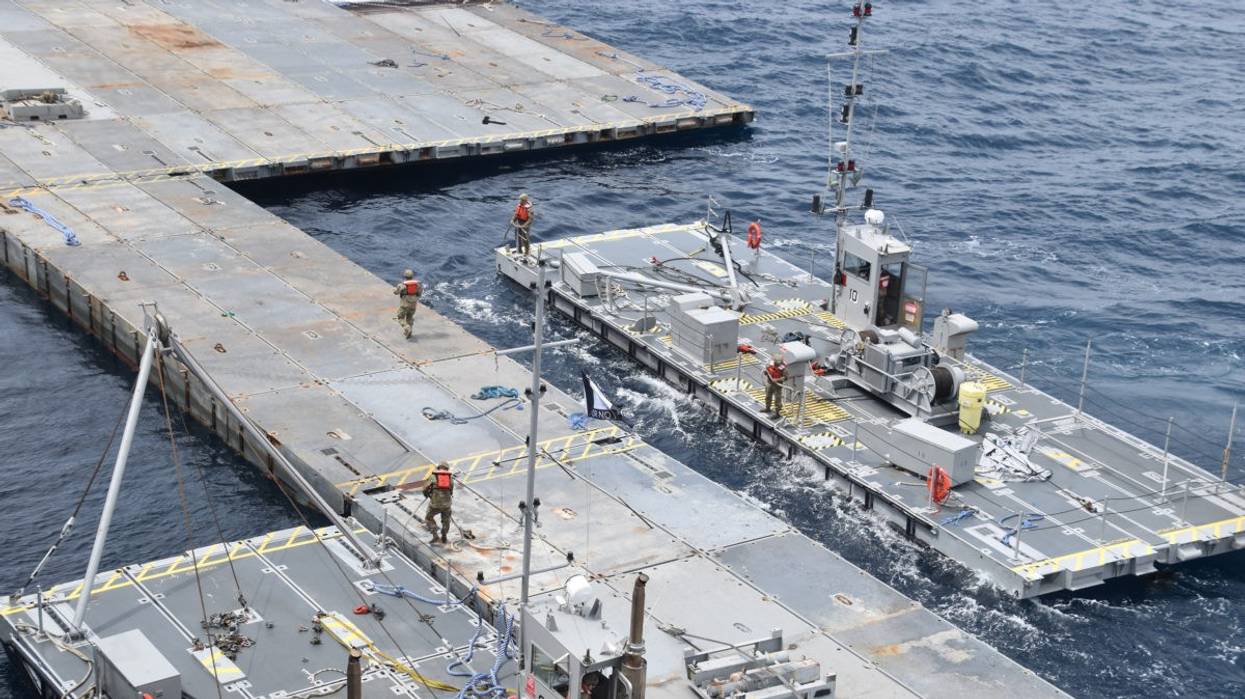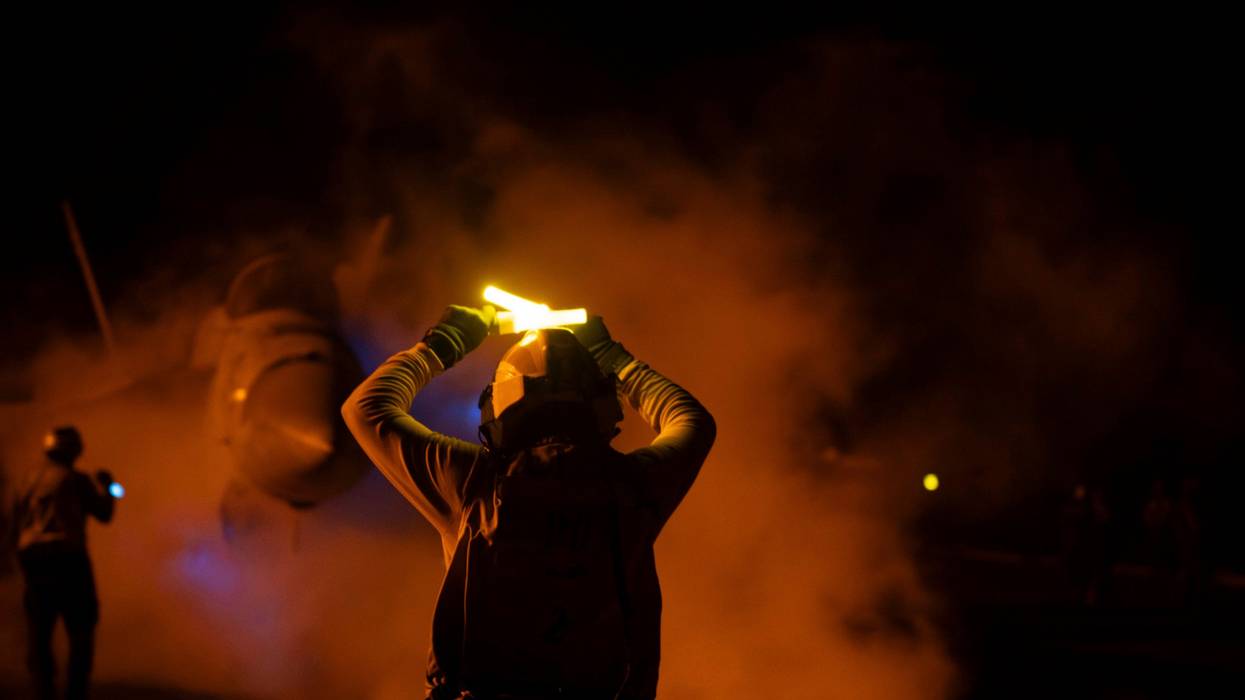Trump: US Forces 'Striking Very Strongly' Against 70+ Targets in Syria
"Most anti-war president ever, also a winner of the FIFA Peace Prize, threatened to invade Venezuela for oil earlier this week and has now launched strikes in Syria," said one observer.
President Donald Trump—the self-described "most anti-war president in history"—on Friday said the US military is "striking very strongly" against Islamic State strongholds in Syria following the killing of two Iowa National Guard members and an American civilian interpreter in the Mideast nation.
"Because of ISIS’s vicious killing of brave American Patriots in Syria, whose beautiful souls I welcomed home to American soil earlier this week in a very dignified ceremony, I am hereby announcing that the United States is inflicting very serious retaliation, just as I promised, on the murderous terrorists responsible," Trump said on his Truth Social network.
"We are striking very strongly against ISIS strongholds in Syria, a place soaked in blood which has many problems, but one that has a bright future if ISIS can be eradicated," the president continued. "The Government of Syria, led by a man who is working very hard to bring Greatness back to Syria, is fully in support."
"All terrorists who are evil enough to attack Americans are hereby warned—YOU WILL BE HIT HARDER THAN YOU HAVE EVER BEEN HIT BEFORE IF YOU, IN ANY WAY, ATTACK OR THREATEN THE U.S.A.," he added.
US Defense Secretary Pete Hegseth said on X that "earlier today, US forces commenced OPERATION HAWKEYE STRIKE in Syria to eliminate ISIS fighters, infrastructure, and weapons sites in direct response to the attack on US forces that occurred on December 13th in Palmyra, Syria."
According to the Wall Street Journal, Jordanian warplanes also took part in Friday's attacks, which reportedly hit more than 70 targets in Syria.
"This is not the beginning of a war—it is a declaration of vengeance," said Hegseth. "The United States of America, under President Trump’s leadership, will never hesitate and never relent to defend our people. As we said directly following the savage attack, if you target Americans—anywhere in the world—you will spend the rest of your brief, anxious life knowing the United States will hunt you, find you, and ruthlessly kill you. Today, we hunted and we killed our enemies. Lots of them. And we will continue."
US Central Command (CENTCOM) said that one of Friday's airstrikes killed ISIS leader Abu Yusif in Dayr az Zawr province in eastern Syria.
“As stated before, the United States—working with allies and partners in the region—will not allow ISIS to take advantage of the current situation in Syria and reconstitute," CENTCOM commander Gen. Michael Erik Kurilla said in a statement. "ISIS has the intent to break out of detention the over 8,000 ISIS operatives currently being held in facilities in Syria. We will aggressively target these leaders and operatives, including those trying to conduct operations external to Syria."
During his first term, Trump followed through on his promise to "bomb the shit out of" ISIS militants in Syria and Iraq, killing thousands of civilians in a campaign launched by former President Barack Obama in 2014. Trump prematurely declared victory over ISIS in 2018.
Since then, the Biden and Trump administrations have bombed Syria, where around 1,000 US troops remain.
During his second term, Trump has ordered attacks on Iran, Somalia, Syria, Yemen, and boats allegedly transporting drugs in the Caribbean Sea and Pacific Ocean. The president—who says he deserves a Nobel Peace Prize—has also deployed warships and thousands of troops for a possible war on Venezuela.
"Most anti-war president ever, also a winner of the FIFA Peace Prize, threatened to invade Venezuela for oil earlier this week and has now launched strikes in Syria," political commentator David Pakman said on X in response to Friday's attacks.
Some observers noted that the strikes on Syria took place on the same day that the Trump administration released some of the files related to the late convicted sex criminal and longtime former Trump friend Jeffrey Epstein.


